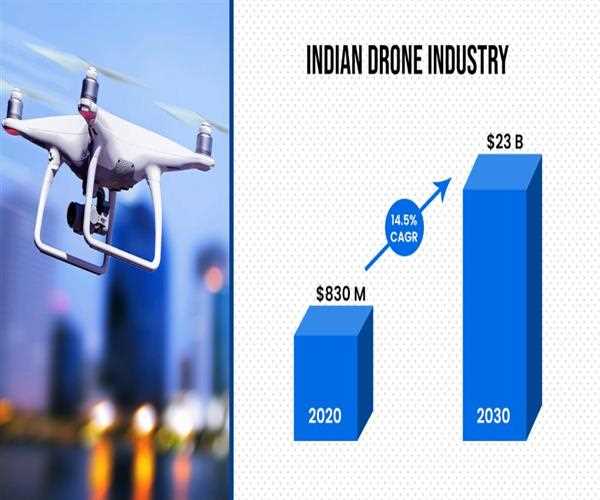Drones have become increasingly prevalent in various industries due to their versatility, efficiency, and technological advancements. These unmanned aerial vehicles (UAVs) have revolutionized numerous sectors, providing innovative solutions and opening up new possibilities. Here are some of the key industries where drones are being utilized:
Agriculture: Drones have transformed modern farming practices. Equipped with sensors and cameras, they can capture high-resolution images of crops, monitor plant health, and detect irrigation needs. This data enables farmers to optimize water usage, assess crop conditions, and detect pest infestations promptly. Drones also assist in precision spraying, delivering pesticides or fertilizers to specific areas, reducing waste and improving overall efficiency.

Construction: Drones offer significant advantages in the construction industry. They aid in land surveying, mapping terrains, and creating accurate 3D models. Construction sites can be monitored from above, ensuring adherence to safety regulations and progress tracking. Drones also facilitate inspections of tall structures, reducing the need for risky manual labor and providing detailed visual assessments.
Logistics and Delivery: Companies like Amazon and DHL are experimenting with drone delivery services. Drones offer a faster and more cost-effective alternative for delivering packages, particularly in remote or congested areas. They can carry lightweight goods directly to customers, reducing transportation time and decreasing carbon emissions.
Media and Entertainment: Drones have transformed the media and entertainment industry by providing unique aerial perspectives. They are extensively used in filmmaking, capturing breathtaking shots that were previously unattainable. Sporting events and concerts also utilize drones for broadcasting, enhancing the viewer experience.
Energy and Utilities: Drones play a vital role in the energy and utilities sector. They assist in inspecting power lines, wind turbines, and solar panels, identifying maintenance needs and potential issues without risking human lives. Drones equipped with thermal cameras can detect heat signatures, identifying areas of energy loss or malfunctioning equipment.
Environmental Conservation: Drones are powerful tools for environmental monitoring and conservation efforts. They aid in tracking wildlife populations, identifying poaching activities, and monitoring ecosystems. Drones equipped with multispectral cameras can assess vegetation health, detect deforestation, and aid in reforestation efforts.
Insurance and Risk Assessment: In the insurance industry, drones streamline risk assessment processes. They provide detailed visual data for property inspections, assisting in claim settlements and underwriting decisions. Drones can quickly assess damage after natural disasters, facilitating prompt response and efficient resource allocation.
Public Safety and Emergency Response: Drones have proven invaluable in public safety and emergency response situations. They aid in search and rescue missions, providing aerial views to locate missing individuals or assess dangerous areas. Drones equipped with thermal imaging can detect heat signatures, helping firefighters identify hotspots during wildfires.
The applications of drones continue to expand as technology advances and regulations evolve. However, concerns regarding privacy, airspace regulations, and public safety must be addressed to ensure responsible and ethical drone usage. With ongoing advancements and increasing industry adoption, drones are poised to revolutionize various sectors, offering increased efficiency, cost savings, and improved outcomes.